
Health issues don’t wait for old age to show up. Many conditions, like high blood pressure or cholesterol, start silently and progress without symptoms. Regular screenings help catch risks early, when they’re easier to manage. For men approaching 40, it’s about staying ahead, not reacting too late. A checkup today could prevent a crisis tomorrow.
Blood Pressure Check
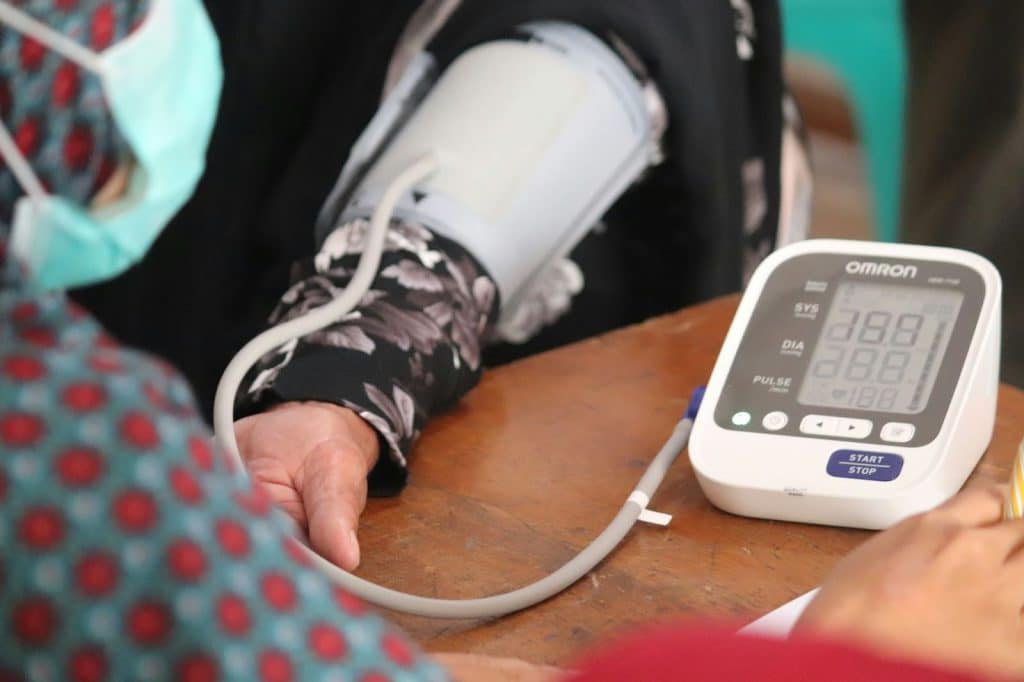
High blood pressure is often called the “silent killer” for a reason. It can damage your heart, brain, and kidneys without warning signs. A simple cuff test can detect it and guide early intervention. Lifestyle changes or medications can prevent long-term damage. Regular checks help maintain heart and vascular health.
Cholesterol Panel
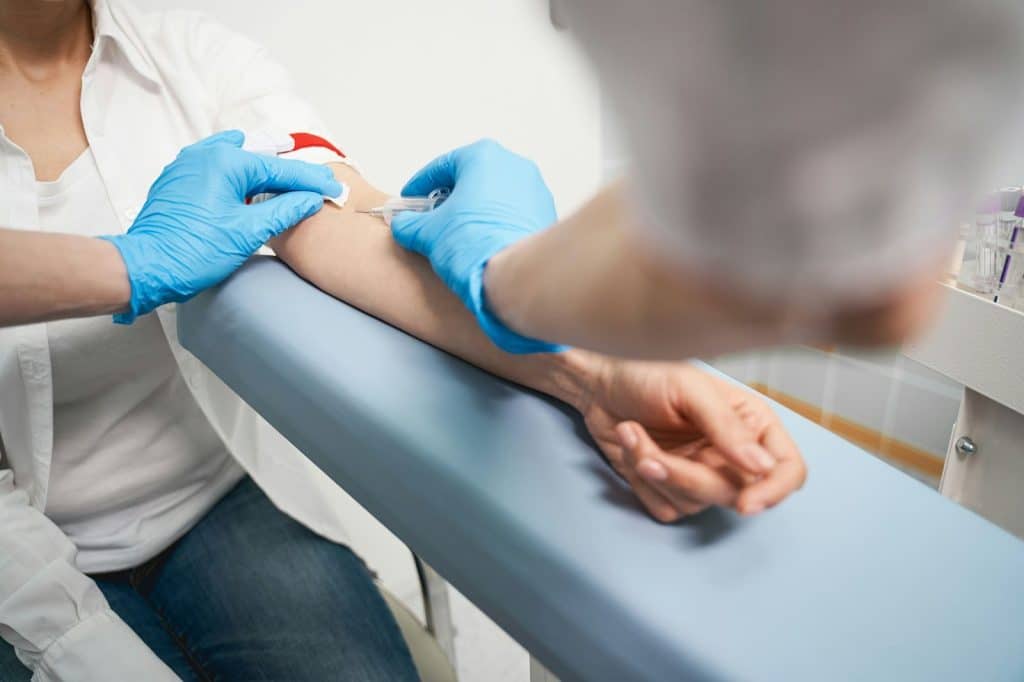
A lipid profile measures total cholesterol, HDL, LDL, and triglycerides. High LDL and low HDL levels can increase the risk of heart disease. The test is quick, typically done through a blood sample after fasting. Even fit men can have cholesterol issues due to genetics. Knowing your numbers means you can manage them.
Blood Glucose Test
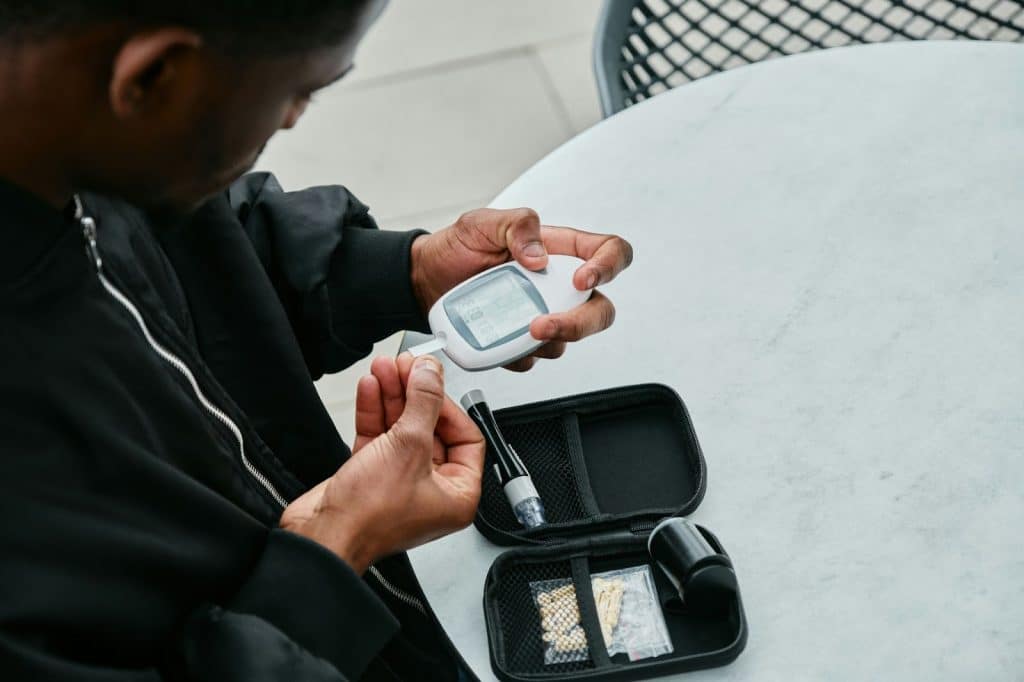
Type 2 diabetes is on the rise, and many men don’t realize they’re at risk. A fasting blood glucose or A1C test can spot early signs of prediabetes. Catching it early allows for changes in diet, exercise, and weight to reverse course. Left unchecked, it can lead to nerve damage, vision loss, and more. Monitoring blood sugar helps maintain energy and long-term health.
Prostate Health Assessment

While prostate cancer screenings are often recommended later, discussing symptoms or family history by 40 is smart. A PSA (prostate-specific antigen) blood test or physical exam may be suggested. Early evaluation can establish a helpful baseline. Talking openly with a doctor about urinary changes or discomfort is key. It’s about knowing what’s normal, so changes don’t go unnoticed.
Testicular Exam

Testicular cancer tends to affect younger men, particularly those between 20 and 40. A quick self-exam or doctor’s check can identify any unusual lumps or swelling. It’s one of the most treatable cancers when found early. Getting familiar with your own body helps you notice any changes. This is one test where awareness makes all the difference.
Skin Cancer Screening
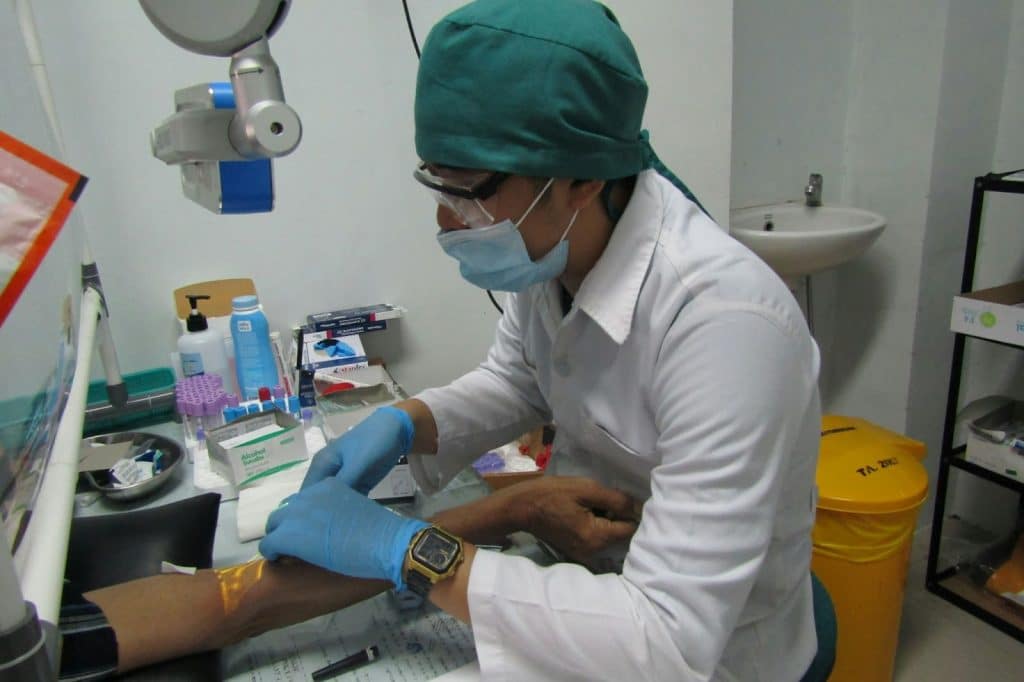
Men often underestimate their skin cancer risk. Regular skin checks, especially for those with fair skin, sun exposure, or a family history, can catch issues early. Dermatologists look for abnormal moles or skin changes. Catching melanoma early saves lives. Sunscreen helps, but screening is the backup.
Eye Exam
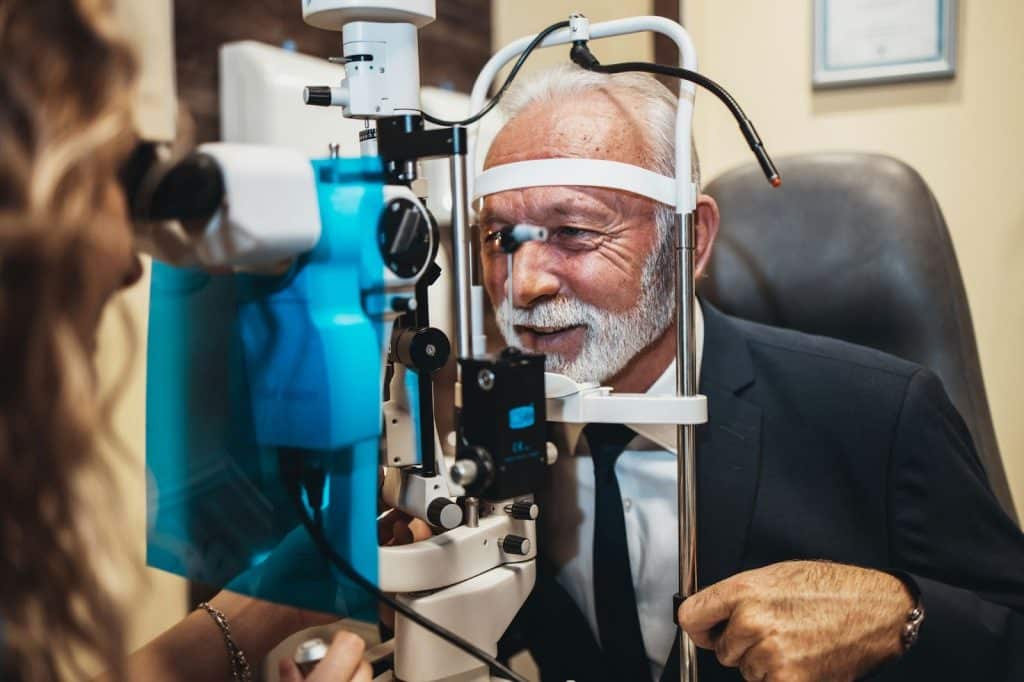
Even if vision seems fine, an eye exam checks more than eyesight. It can detect early signs of glaucoma, cataracts, and even diabetes. For men who stare at screens all day, it also helps manage strain and dryness. Eye health affects quality of life more than many realize. Regular exams preserve vision before issues arise.
Hearing Test
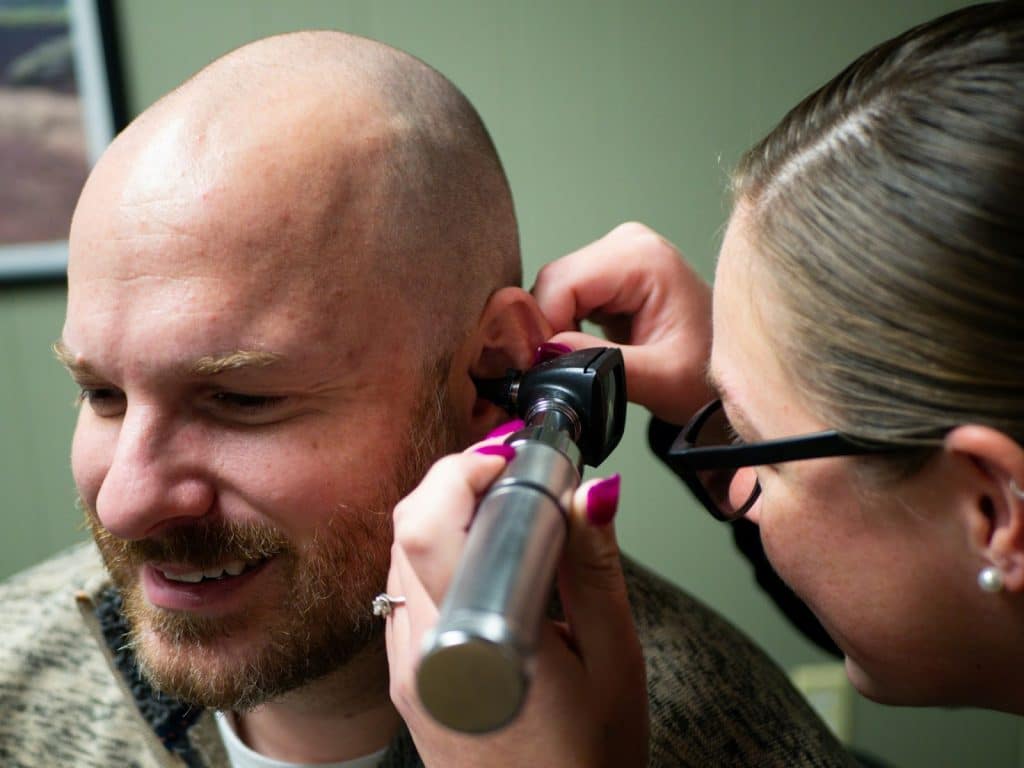
Hearing loss creeps in slowly, often going unnoticed. Noise exposure from work, concerts, or headphones can take a toll. A baseline hearing test before 40 helps track changes over time. Catching early signs allows for protection strategies. Good hearing isn’t just about sound, it’s key to communication and connection.
Colon Health Discussion
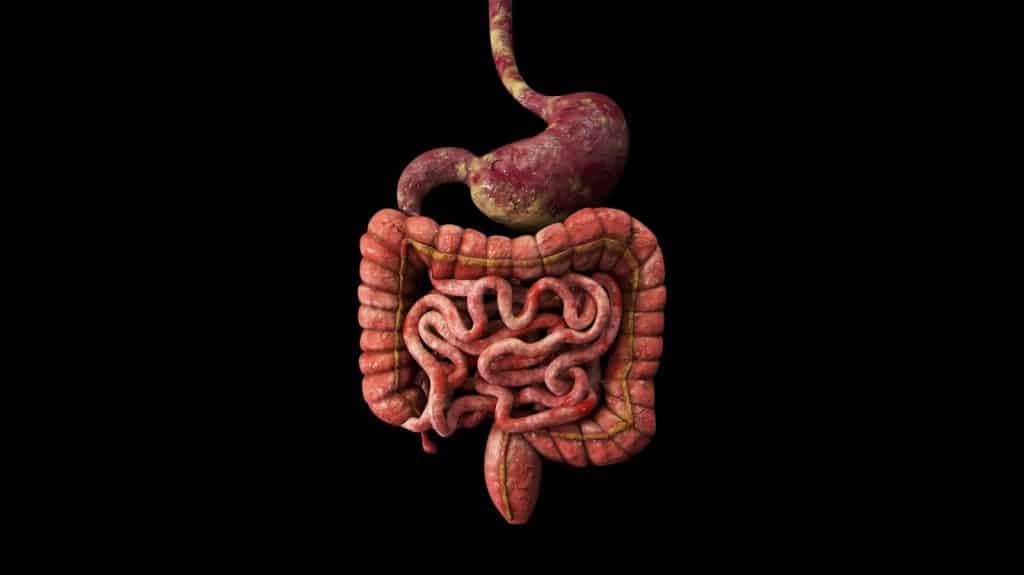
While colonoscopies often begin at 45, men with risk factors or family history should start the conversation earlier. Other options like stool tests or sigmoidoscopies may be appropriate. Digestive symptoms shouldn’t be ignored. Prevention starts with awareness and a plan. Talking to a doctor helps tailor the timing.
Thyroid Function Test

Thyroid imbalances can affect energy, weight, and mood, often mistaken for just “getting older.” A blood test measuring TSH and related hormones can uncover issues. Underactive thyroid (hypothyroidism) is more common than most realize. Addressing it improves metabolism and mental clarity. Testing clears up guesswork when energy levels dip.
Liver Function Panel
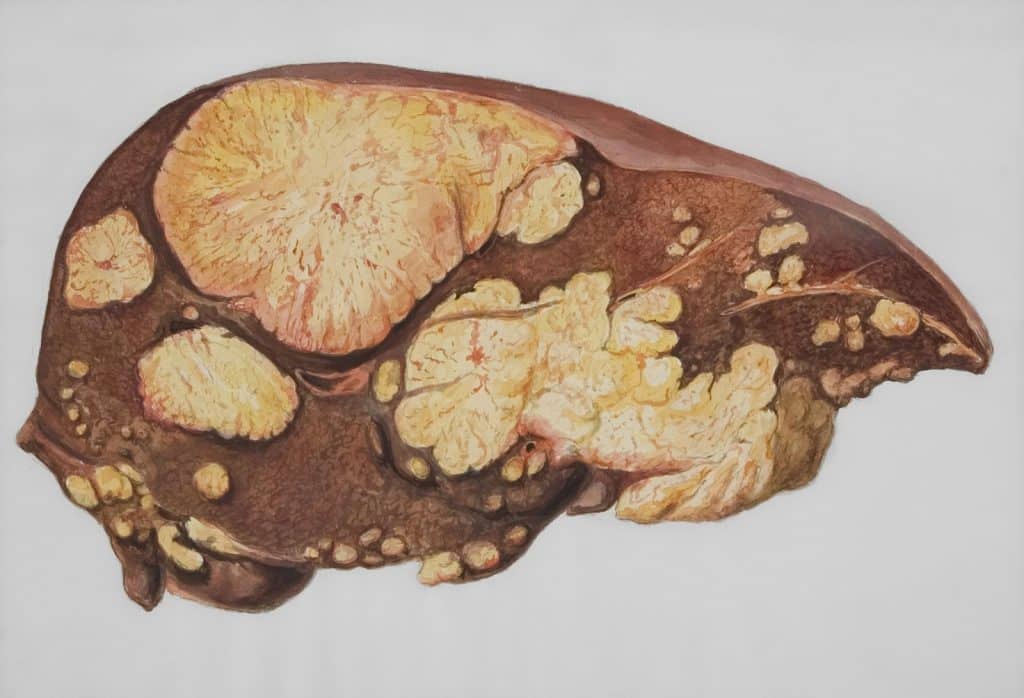
Your liver filters toxins, processes medications, and supports digestion. A liver panel checks for inflammation, damage, or disease. Risk factors include alcohol use, medications, and viral infections like hepatitis. Catching liver issues early can prevent long-term complications. It’s a vital organ that deserves regular check-ins.
BMI and Body Composition Assessment
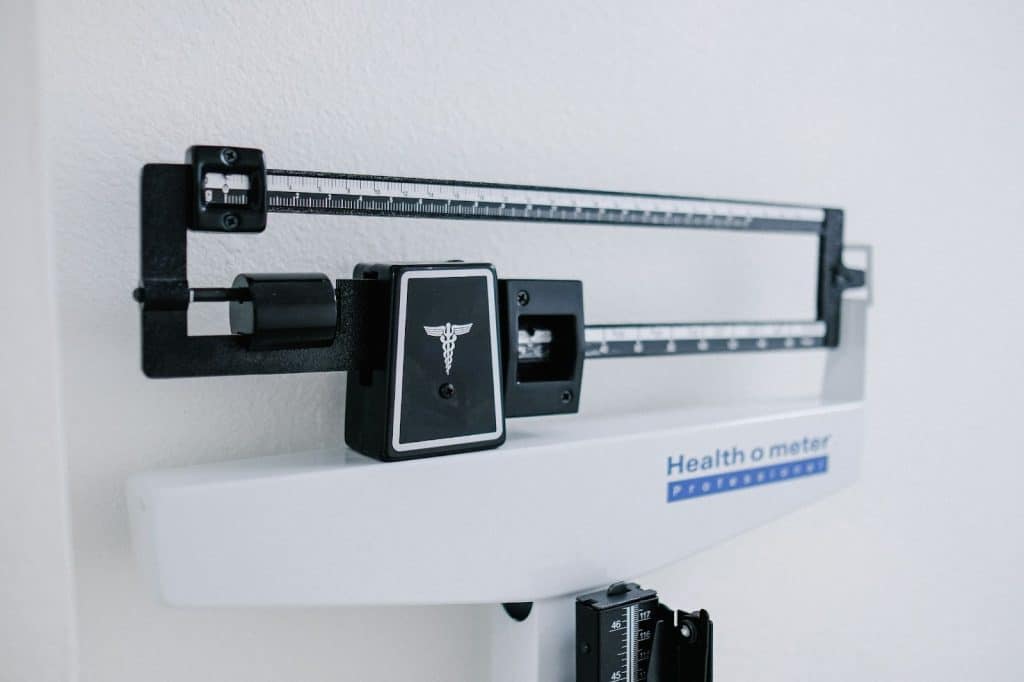
Body Mass Index (BMI) gives a basic idea of weight status, but body composition tells a deeper story. Tracking fat percentage, muscle mass, and visceral fat helps tailor fitness goals. It’s not about looking a certain way, it’s about health. Even lean-looking men can carry hidden risk. These numbers help personalize health strategies.
Health Is an Ongoing Conversation

Health isn’t a one-time event, it’s an ongoing relationship with your body. These tests are checkpoints, not verdicts. They offer information that helps guide smarter choices over time. Prioritizing regular screenings builds a foundation for longer, healthier living. The earlier the engagement, the greater the long-term reward.
Investing in Health Pays Dividends

Getting tested isn’t about fear, it’s about control. Men who stay proactive with their health often avoid bigger issues down the line. These 13 tests aren’t just medical, they’re personal investments. Each one strengthens the foundation for a better future. And that future starts with one appointment.






Ask Me Anything